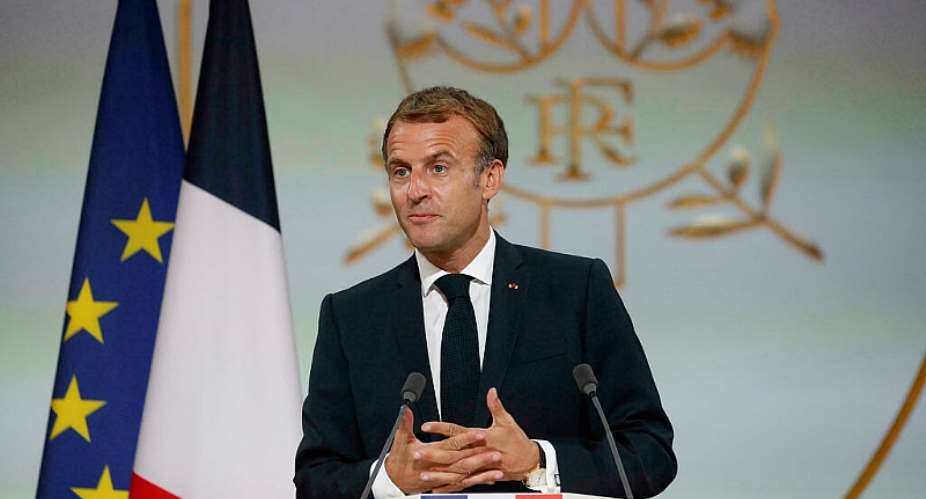In a first for a French president, Emmanuel Macron has admitted the shooting of unarmed civilians by French soldiers in Algiers in 1962 was an "unforgivable" act. He also acknowledged a second massacre in Oran the same year, and called for a reconciliation process to begin.
Macron acknowledged the two brutal events occurred in Algeria during gathering in the Elysée Palace on Wednesday. In attendance were people of French origin who were repatriated after Algeria gained independence.
He said the shooting of dozens of European supporters of French Algeria on the rue d'Isly in the heart of Algiers on 26 March, 1962, was "unforgivable for the republic".
"On that day, French soldiers, poorly commanded and deployed against their will, fired on French people ... That day was a massacre," admitted Macron.
At least 50 people were killed when French soldiers shot at unarmed civilians demonstrating for France's continued presence in Algeria.
The massacre occurred shortly after the signing of the Evian Accords, which ended the Algerian War, which lasted from 1954 to 1962, killing 500,000 people, and paving the way for Algerian independence on 5 July, 1962.
It marked the beginning of the mass exodus of “pieds-noirs” – a term for the French settlers in Algeria – who had to leave North Africa for mainland France.
History must be faced
Macron also said it was necessary for France to acknowledge the massacre that took place on the day of independence, 5 July, 1962 in Oran, where hundreds of Europeans were killed, mostly French.
"The truth must be revealed, and the story of this passed on," Macron said, adding that all French archives covering the period of the Algerian war for independence could now be consulted freely by the public.
"I realise a speech does not rectify 60 years of injustice ... but today I offer a few words to show recognition for these tragedies that the republic has never expressed before."
The path we now must follow is one of "reconciliation", with the pied-noir community, which accounts for some 5-6 million people in France.
Among the guests invited to the ceremony were the film director Alexandre Arcady and the actress Françoise Fabian, as well of descendants of the repatriated families.
"The President's words were touching, I found them honest, sincere," said Béziers Mayor Robert Ménard, who was born in Oran and supports far-right leader Marine Le Pen in France's upcoming presidential elections.
"We pieds-noirs need to hear these kind of words, ones we've never heard before."
Forgiveness, reparations
Jean-Félix Vallat, president of the North African French farmers' association, said he was "satisfied" with Macron's efforts, but added the President "needed to go further".
However the "Jeune Pied-Noir" youth movement was critical, writing in a statement that Macron's gesture was "stupid and careless", slamming his "unrealistic" concept of "shared memories".
At the same event on Wednesday, Macron again asked for forgiveness from the Harkis, Algerian soldiers who fought in the French army and who were later abandoned by the state.
The Senate earlier this week adopted the first reading of a bill to formalise this process and attempt to establish reparations for the suffering of thousands of Harkis who were given "unacceptable" lodgings when they were repatriated to France at the end of the Algerian war.
France's first leader born after the colonial era, Macron has made a priority of reckoning with the past and forging a new relationship with former colonies.





 SSNIT must be managed without gov’t interference – Austin Gamey
SSNIT must be managed without gov’t interference – Austin Gamey
 Ejisu by-election could go either way between NPP and independent candidate — Gl...
Ejisu by-election could go either way between NPP and independent candidate — Gl...
 We never asked ministers, DCEs to bring NPP apparatchiks for returning officer r...
We never asked ministers, DCEs to bring NPP apparatchiks for returning officer r...
 No one denigrated the commission when you appointed NDC sympathizers during your...
No one denigrated the commission when you appointed NDC sympathizers during your...
 Used cloth dealers protests over delayed Kumasi Central Market project
Used cloth dealers protests over delayed Kumasi Central Market project
 A/R: Kwadaso onion market traders refuse to relocate to new site
A/R: Kwadaso onion market traders refuse to relocate to new site
 Dumsor: Corn mill operators at Kaneshie market face financial crisis
Dumsor: Corn mill operators at Kaneshie market face financial crisis
 Jamestown fishermen seek support over destruction of canoes by Tuesday's heavy d...
Jamestown fishermen seek support over destruction of canoes by Tuesday's heavy d...
 Election 2024: EC to commence voter registration exercise on May 7
Election 2024: EC to commence voter registration exercise on May 7
 Public schools rebranding: We’re switching to blue and white, we’re painting all...
Public schools rebranding: We’re switching to blue and white, we’re painting all...
